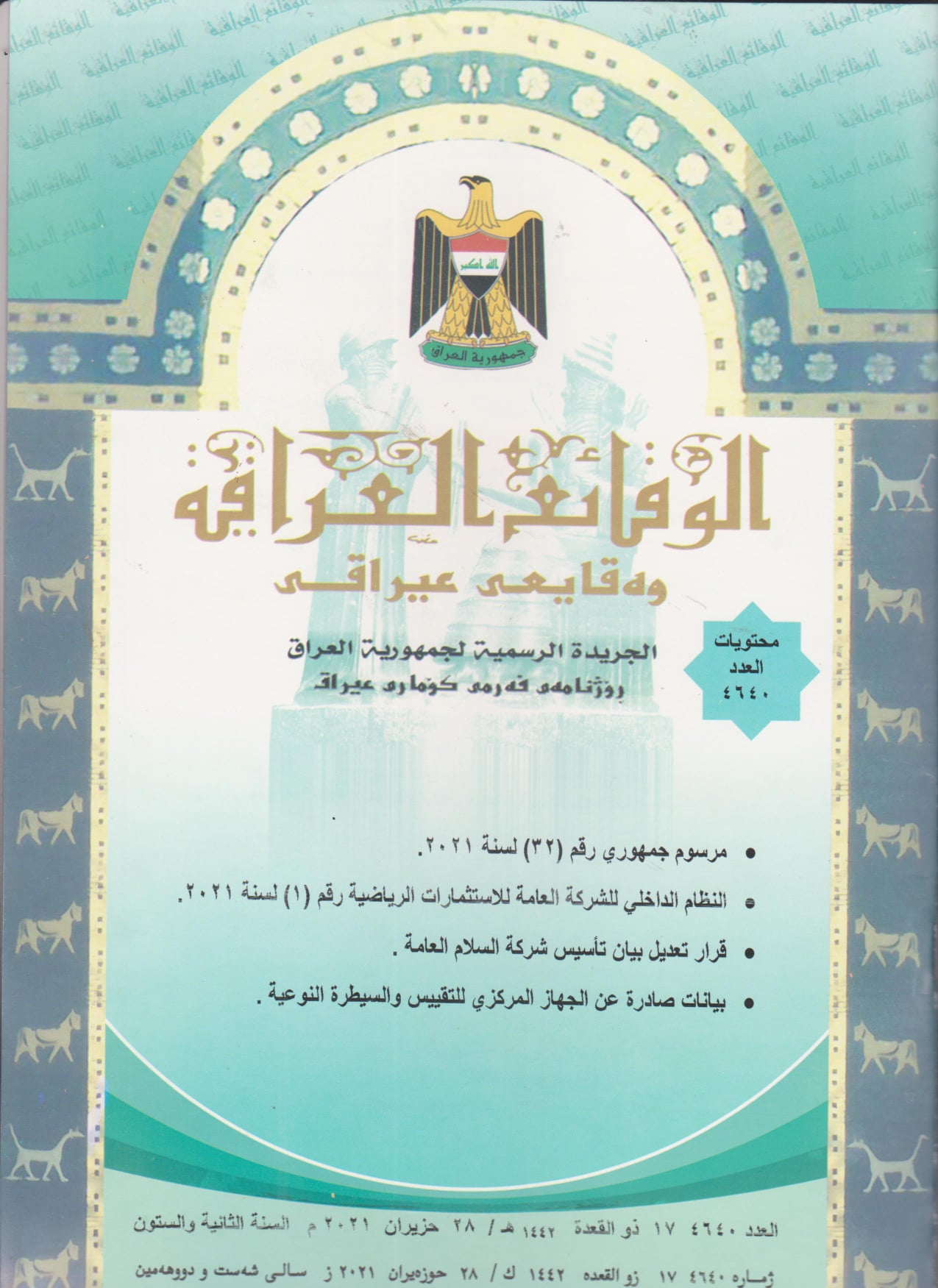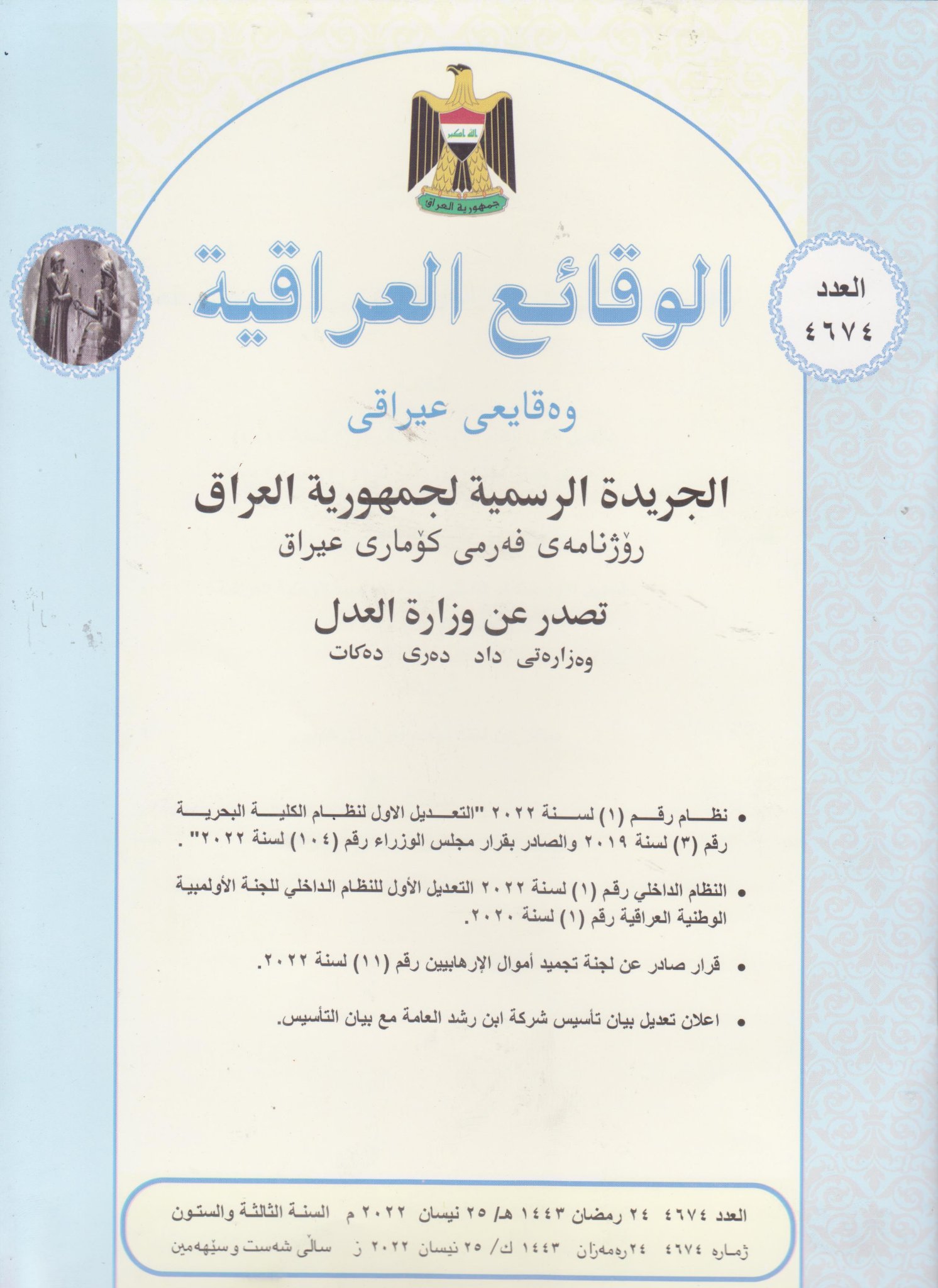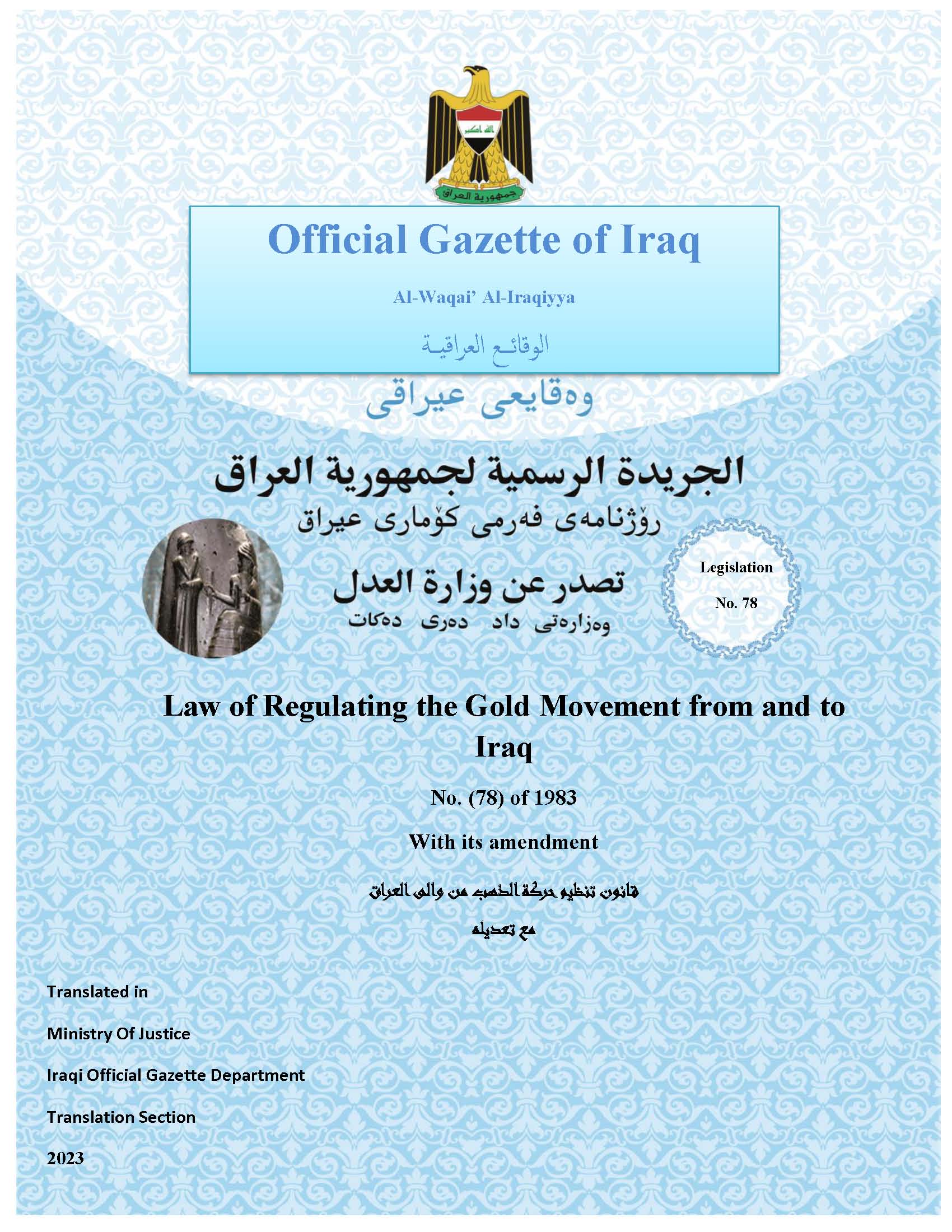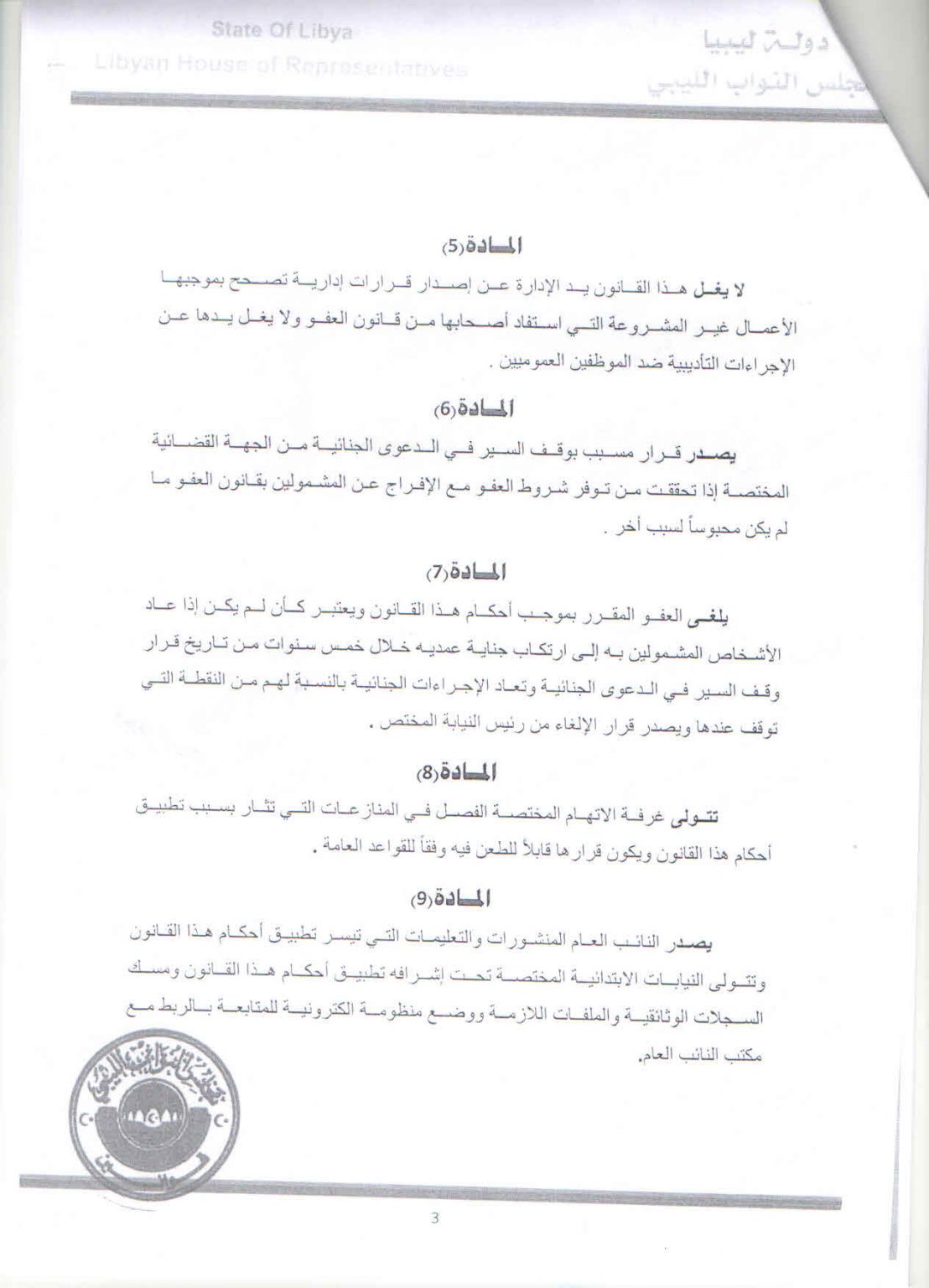Iraq Amnesty Law: Al-Waqai Al-Iraqiyah Newspaper
Editor's Notes: The Iraqi Amnesty Law: Al-Waqai Al-Iraqiyah Newspaper was published on date. This topic is important to read because it discusses the Iraqi government's decision to grant amnesty to certain individuals.
Our team has analyzed and gathered information to create this guide on the Iraqi Amnesty Law: Al-Waqai Al-Iraqiyah Newspaper to assist the target audience in understanding and making informed decisions.

قانون التعديل الثاني لقانون التدرج الطبي البيطري رقم ١٣٦ لسنة ١٩٨٠ - Source archive4.parliament.iq
Key Differences or Key Takeaways
Transition to main article topics
FAQs on Iraq's General Amnesty Law
The General Amnesty Law is a comprehensive piece of legislation passed by the Iraqi government to address issues related to past offenses and promote reconciliation.

وزارة العدل - جمهورية العراق - Source moj.gov.iq
Question 1: What offenses are covered by the General Amnesty Law?
The General Amnesty Law covers a wide range of offenses, including political crimes, common crimes, and terrorist activities that occurred before a specific date.
Question 2: Who is eligible for the amnesty?
Iraqi citizens who committed offenses before the specified date are generally eligible for amnesty. However, certain categories of individuals, such as those convicted of serious crimes like murder or rape, may be excluded.
Question 3: What is the process for applying for the amnesty?
The process for applying for the amnesty varies depending on the type of offense. In general, individuals must submit an application to the relevant authorities, along with supporting documentation.
Question 4: What are the benefits of receiving amnesty?
Receiving amnesty can provide individuals with a number of benefits, including the dismissal of charges, release from prison, and restoration of civil rights.
Question 5: What are the potential consequences of not applying for amnesty?
Individuals who do not apply for amnesty may face prosecution and punishment for their offenses.
Question 6: Where can I find more information about the General Amnesty Law?
More information about the General Amnesty Law can be obtained from the Iraqi government website or by contacting the relevant authorities.
The General Amnesty Law is a complex piece of legislation, and its interpretation and application can vary depending on the specific circumstances of each case. It is advisable to seek legal advice to fully understand one's rights and obligations under the law.
For further information, refer to the official publication in the Iraqi Gazette.
Tips by قانون العفو العام العراقي: جريدة الوقائع العراقية
Tip 1: Filing is simple and straightforward.
Iraqi General Amnesty Law: The Iraqi Gazette
The Iraqi General Amnesty Law, published in the Iraqi Gazette, is a comprehensive piece of legislation that addresses a range of offenses and their associated penalties. It is imperative to examine the crucial aspects of this law to comprehend its implications and effects on Iraqi society and the justice system.
- Eligibility: The law defines the criteria for individuals eligible for amnesty, considering factors such as offense severity.
- Exclusions: The law explicitly excludes certain grave offenses from amnesty, including terrorism and murder.
- Procedures: The law outlines the administrative procedures for applying for and obtaining amnesty.
- Consequences: The law specifies the consequences of receiving amnesty, including the expungement of criminal records.
- Exceptions: The law allows for exceptions to the general amnesty provisions in specific circumstances.
- Implications: The law has significant implications for the rehabilitation of offenders, reconciliation within society, and the overall functioning of the criminal justice system.
These key aspects collectively provide a comprehensive framework for understanding the Iraqi General Amnesty Law's scope, objectives, and potential impact. They highlight the balance between justice, mercy, and the need for social harmony in post-conflict societies.

وزارة العدل - جمهورية العراق - Source www.moj.gov.iq

وزارة العدل - جمهورية العراق - Source www.moj.gov.iq
قانون العفو العام العراقي: جريدة الوقائع العراقية
"قانون العفو العام العراقي: جريدة الوقائع العراقية" constitutes an integral component of Iraq's legal framework, providing a pathway for individuals to seek exoneration or leniency for certain offenses. By examining the provisions outlined in this document, legal practitioners and scholars can gain valuable insights into the Iraqi justice system's approach to amnesty and rehabilitation.

قانون رقم 6 لسنة 2015 م في شأن العفو العام - Al Yassir Office - Source alyassir.com
Within the broader context of Iraqi law, this document holds significant importance, establishing the criteria and procedures for granting pardons or commutations of sentences. The provisions outlined in this legislation delineate the categories of offenses eligible for amnesty, the process for submitting applications, and the criteria for evaluating petitions.
Understanding the nuances of this law is crucial for legal professionals navigating the Iraqi criminal justice system. It enables them to effectively represent clients seeking clemency or expungement of criminal records. Furthermore, the practical implications of this understanding extend to the lives of individuals who may benefit from the opportunities for rehabilitation and reintegration into society.
Key Insights:
- Understanding the Iraqi legal framework for granting pardons and commutations.
- Identifying eligible offenses and the application process for amnesty.
- Analysis of criteria used to evaluate petitions for clemency.
- Realizing the legal and practical implications for individuals seeking rehabilitation.
Conclusion
In conclusion, "قانون العفو العام العراقي: جريدة الوقائع العراقية" serves as a crucial component within Iraq's legal framework, providing a structured approach to granting pardons and commutations of sentences. Through its provisions, the document establishes eligibility criteria, application procedures, and evaluation metrics, enabling legal practitioners and individuals to navigate the Iraqi justice system effectively. Understanding this law's intricacies is fundamental for ensuring fair and just outcomes in criminal cases, promoting rehabilitation, and fostering societal reintegration.
The significance of this understanding extends beyond legal practitioners, encompassing individuals seeking clemency, their families, and the broader community. By providing a pathway for redemption and a second chance, "قانون العفو العام العراقي: جريدة الوقائع العراقية" contributes to the maintenance of a just and compassionate society.